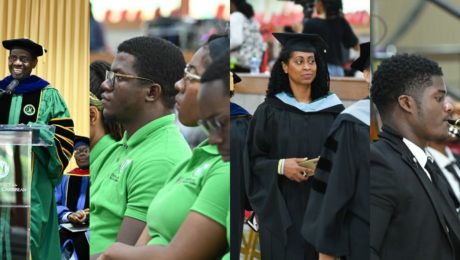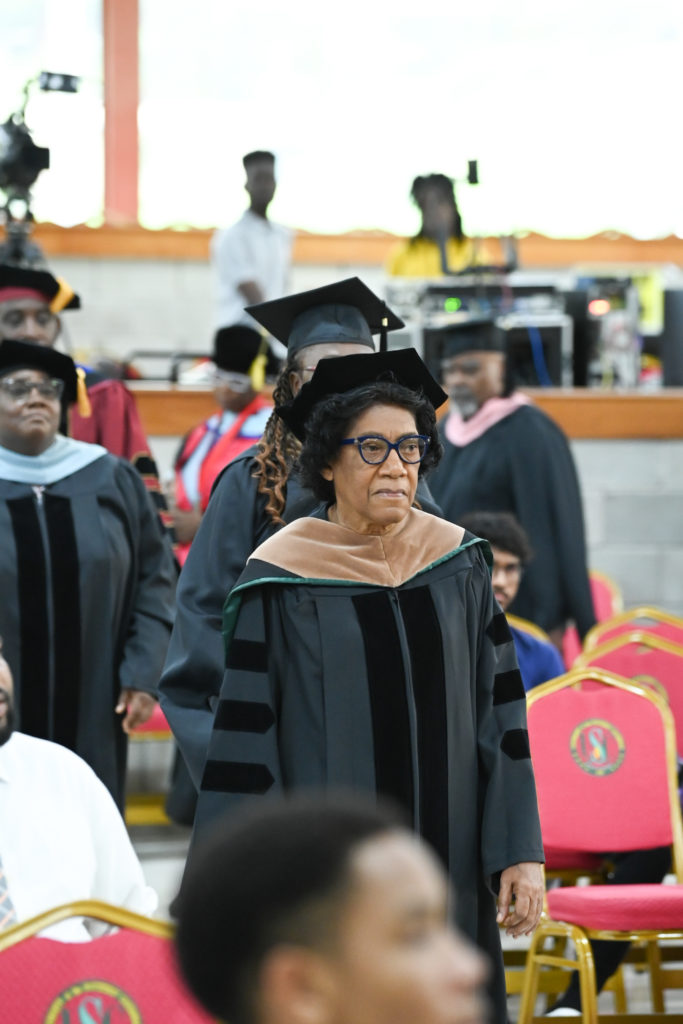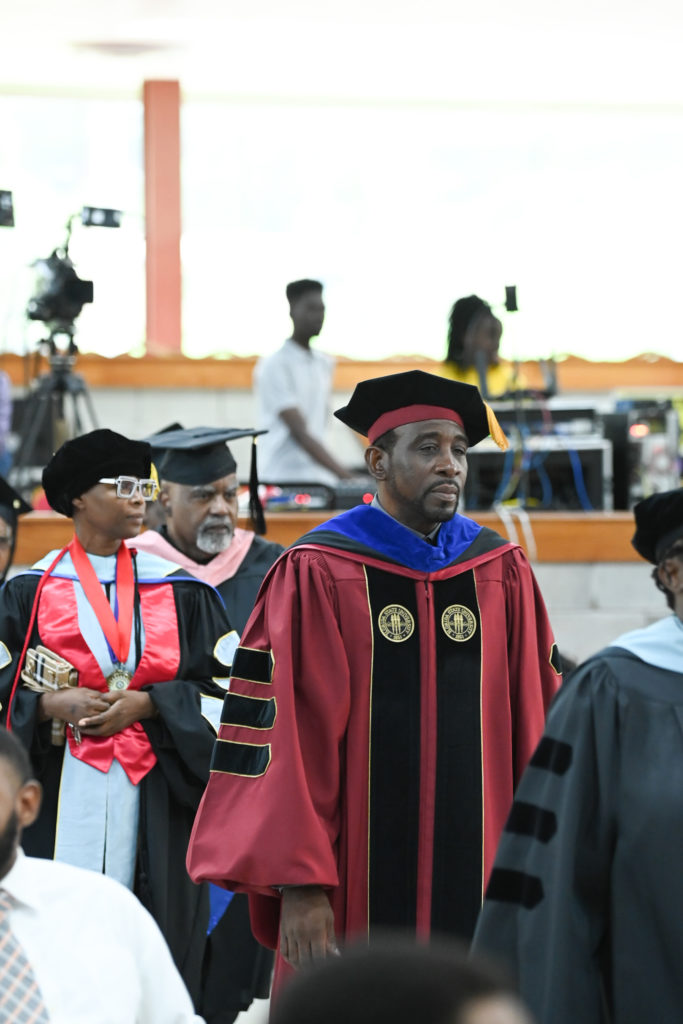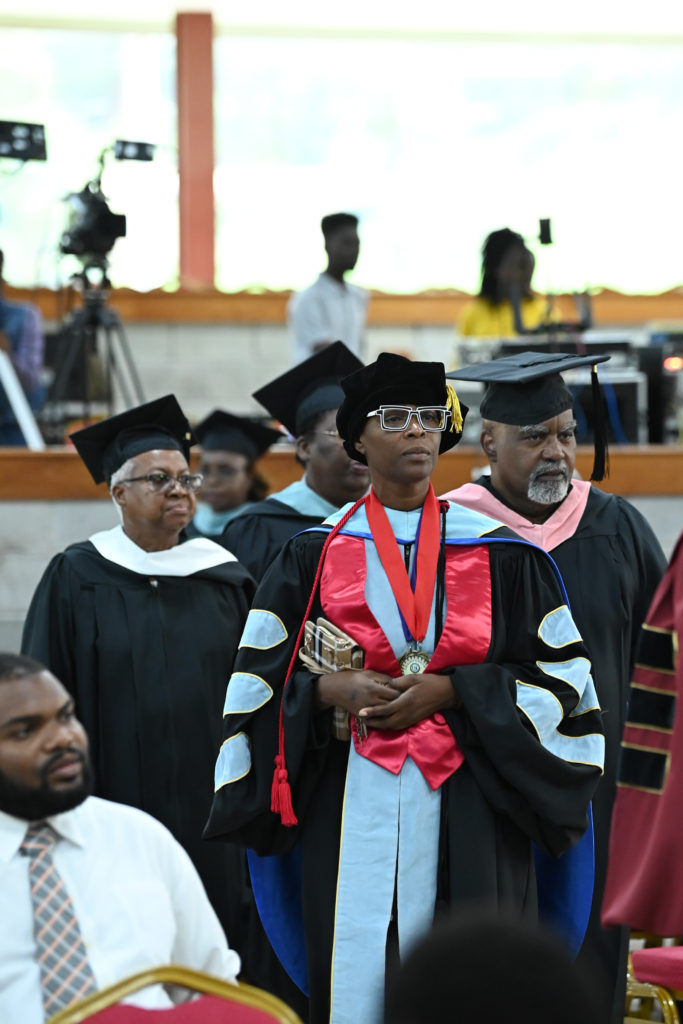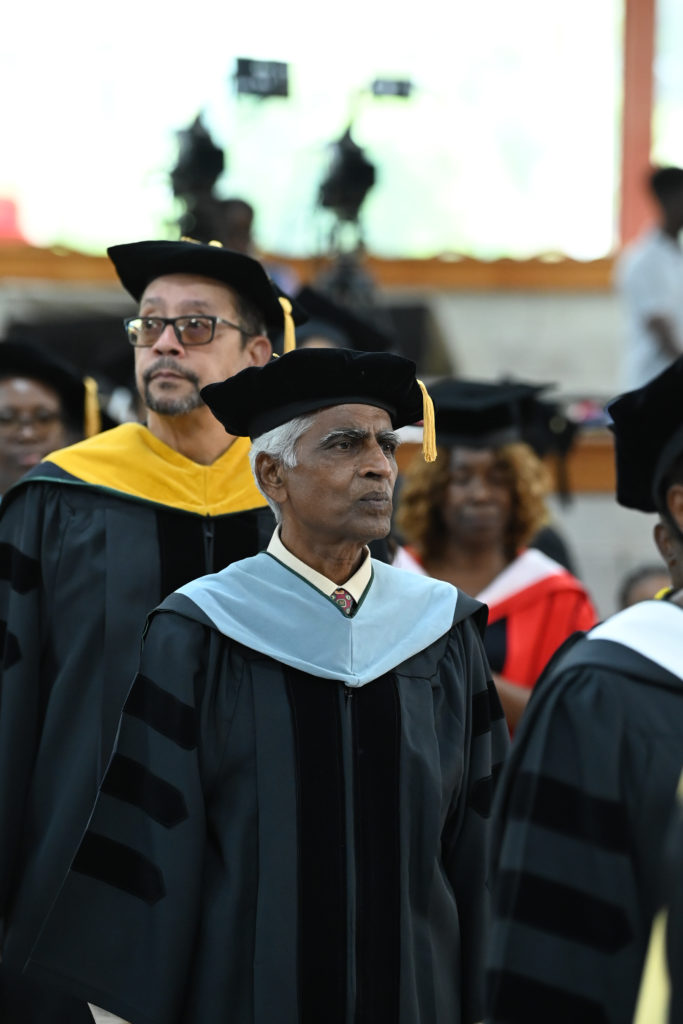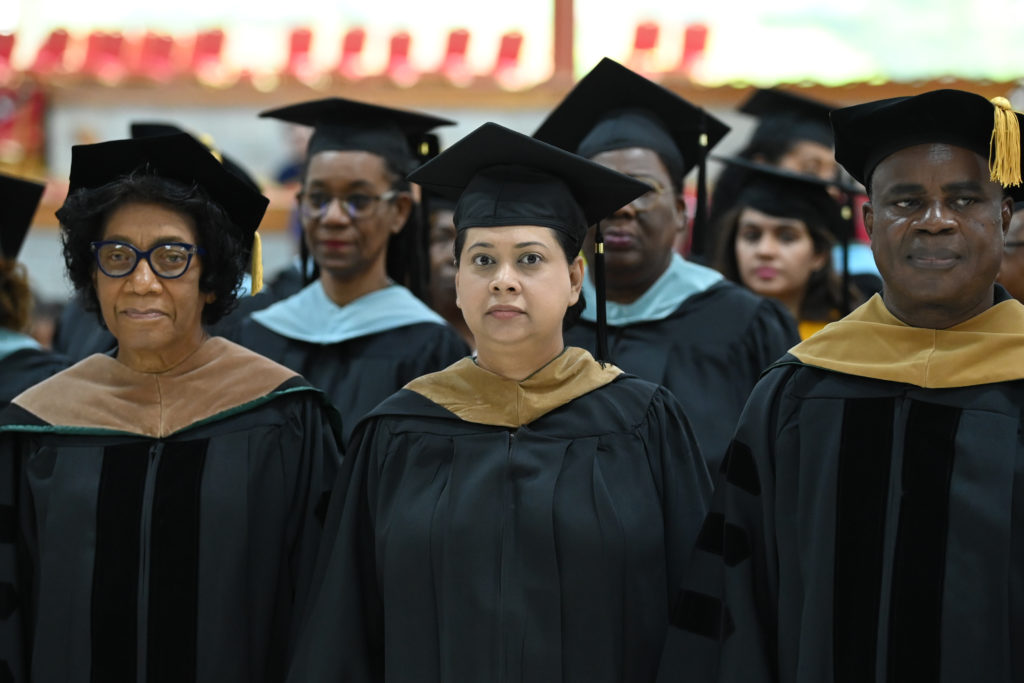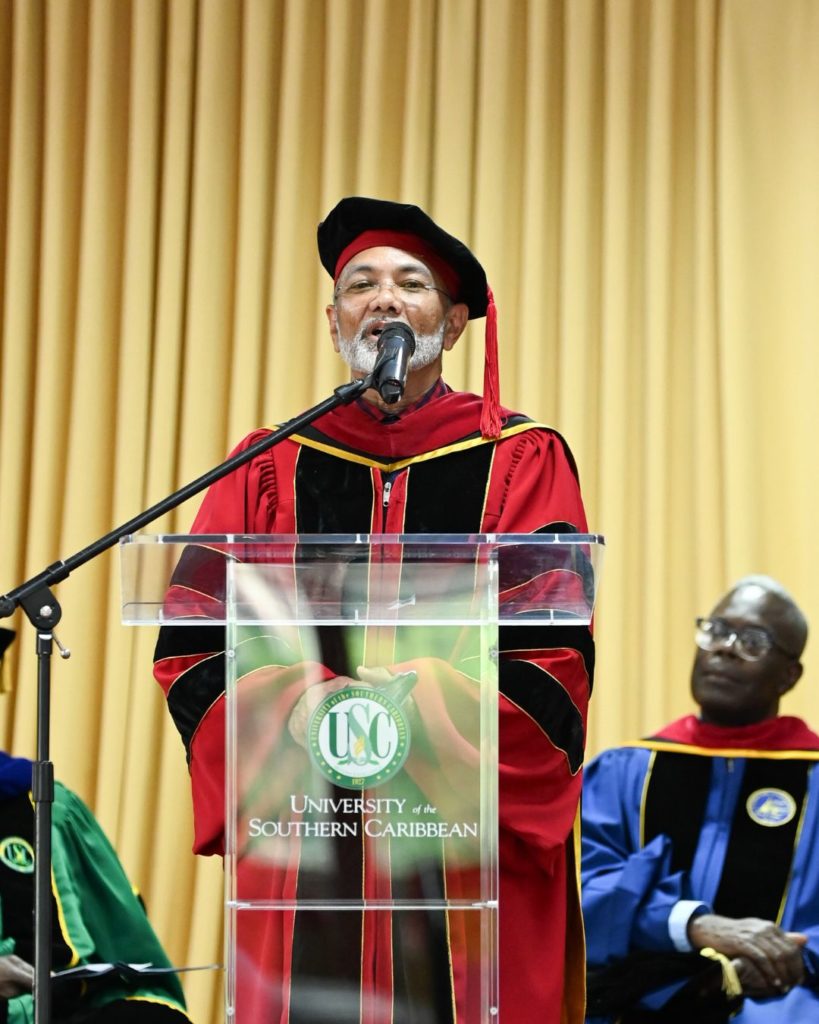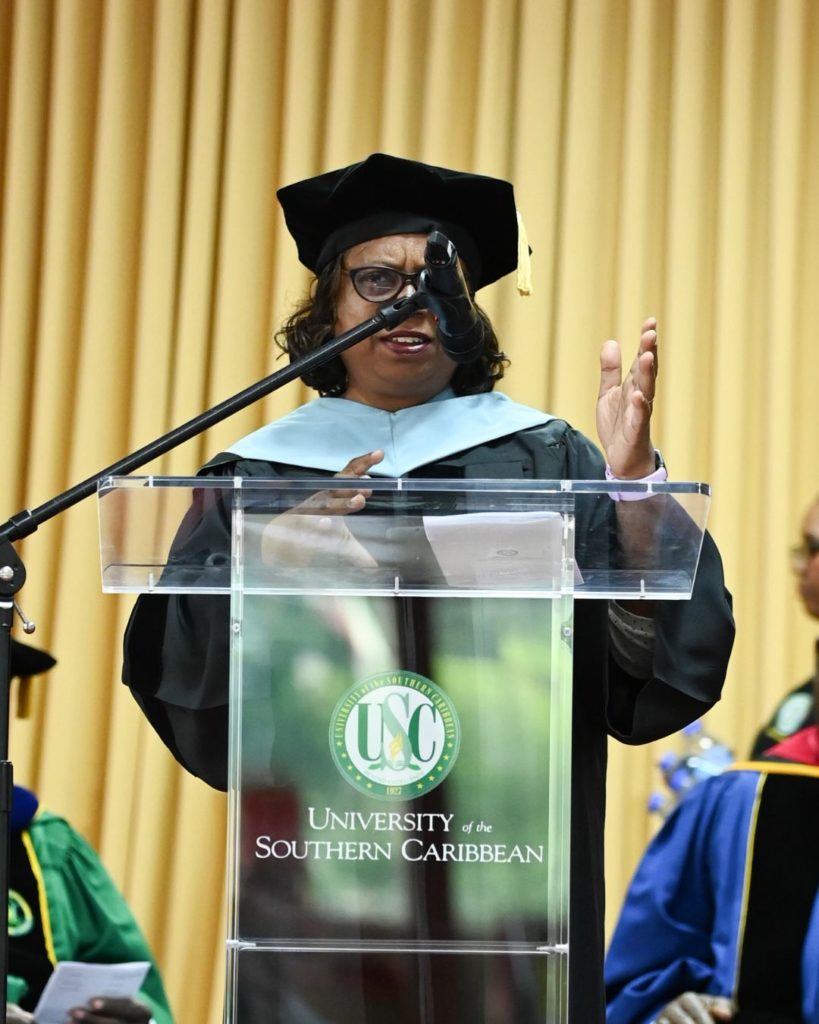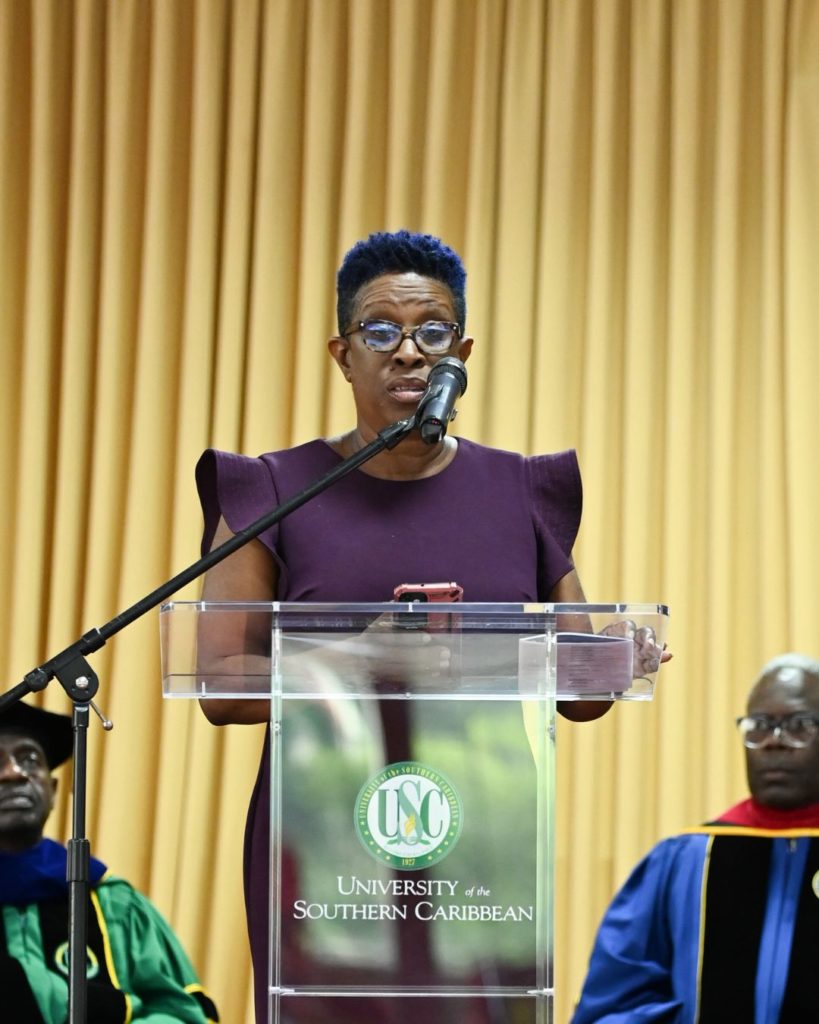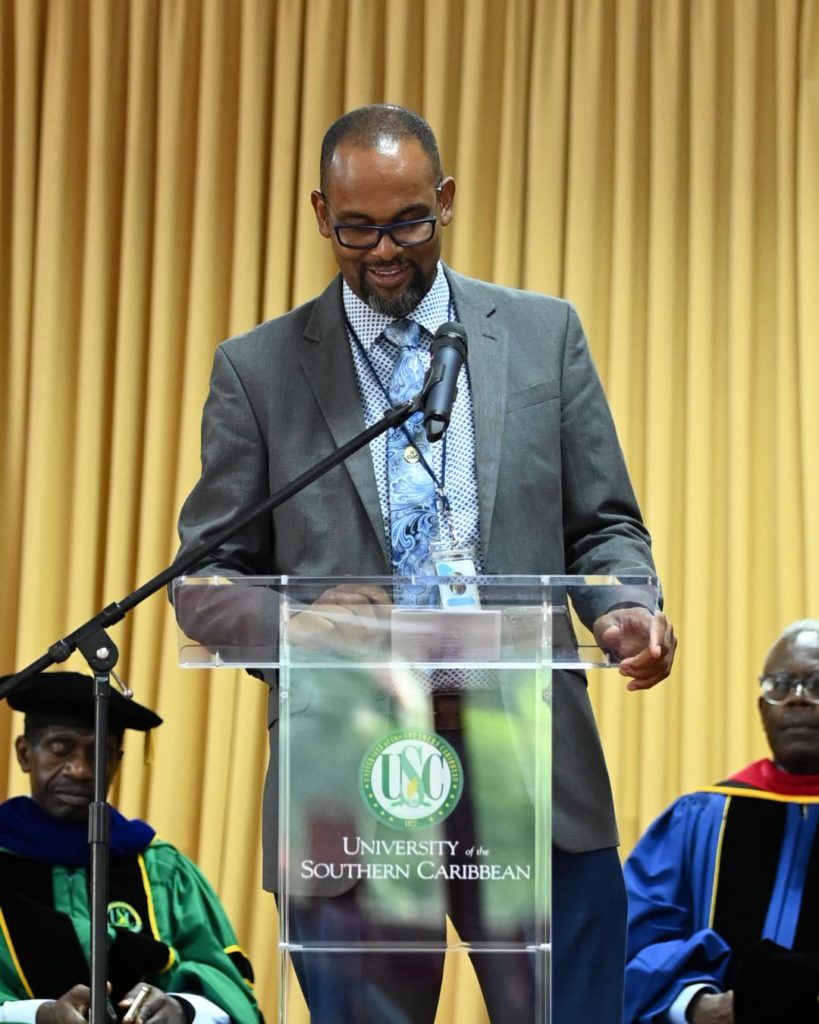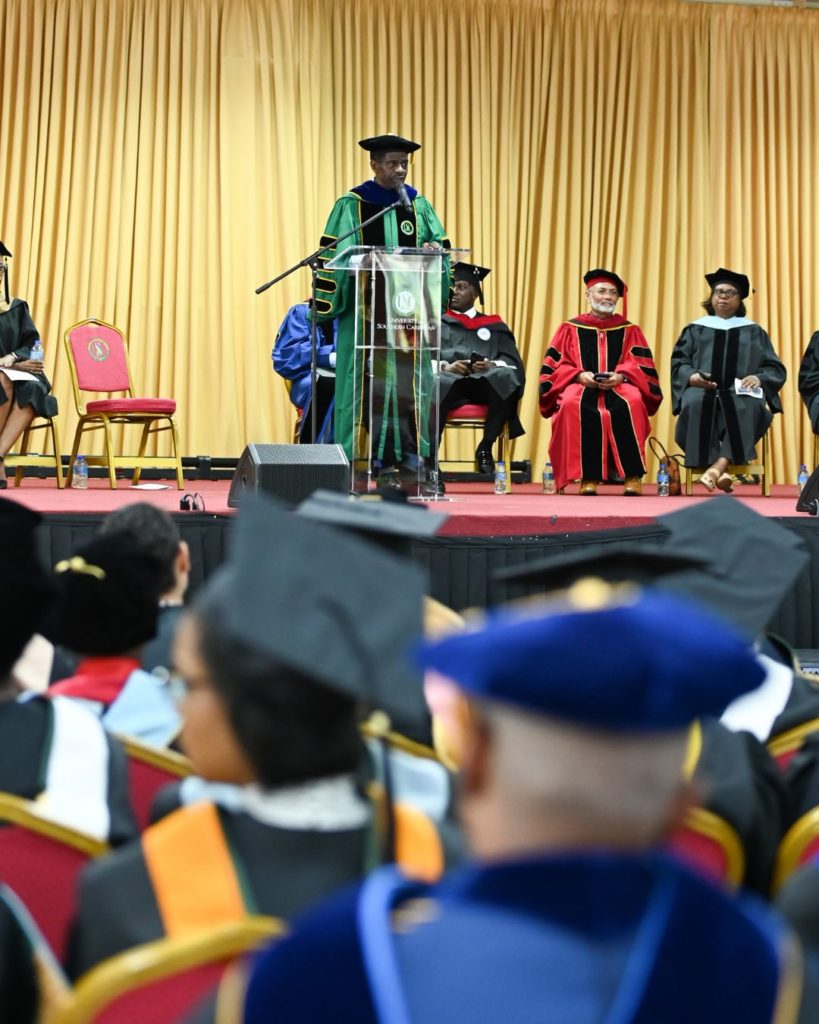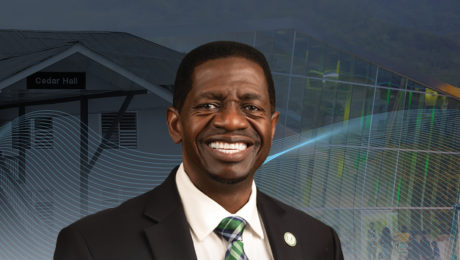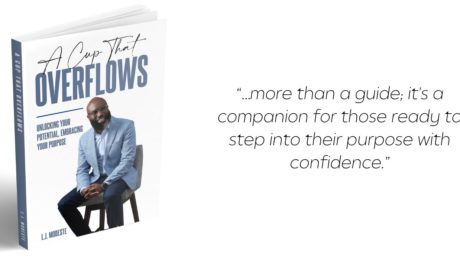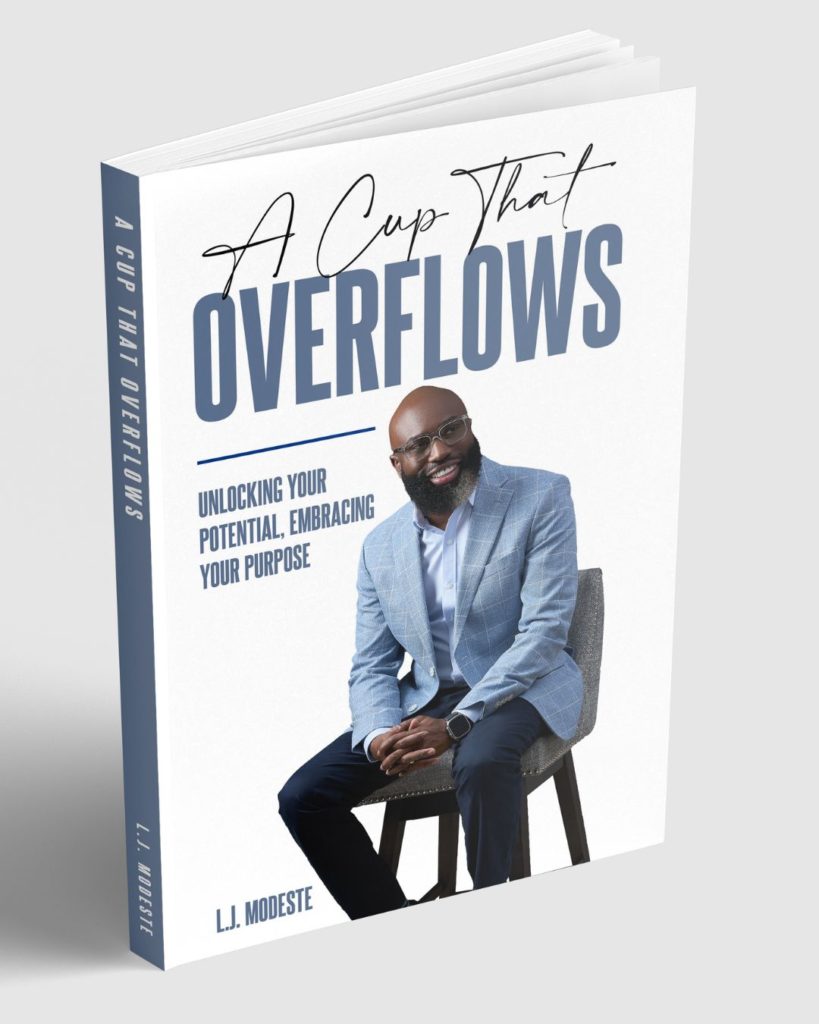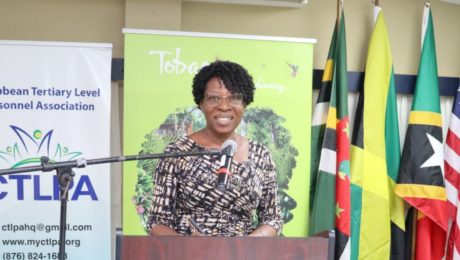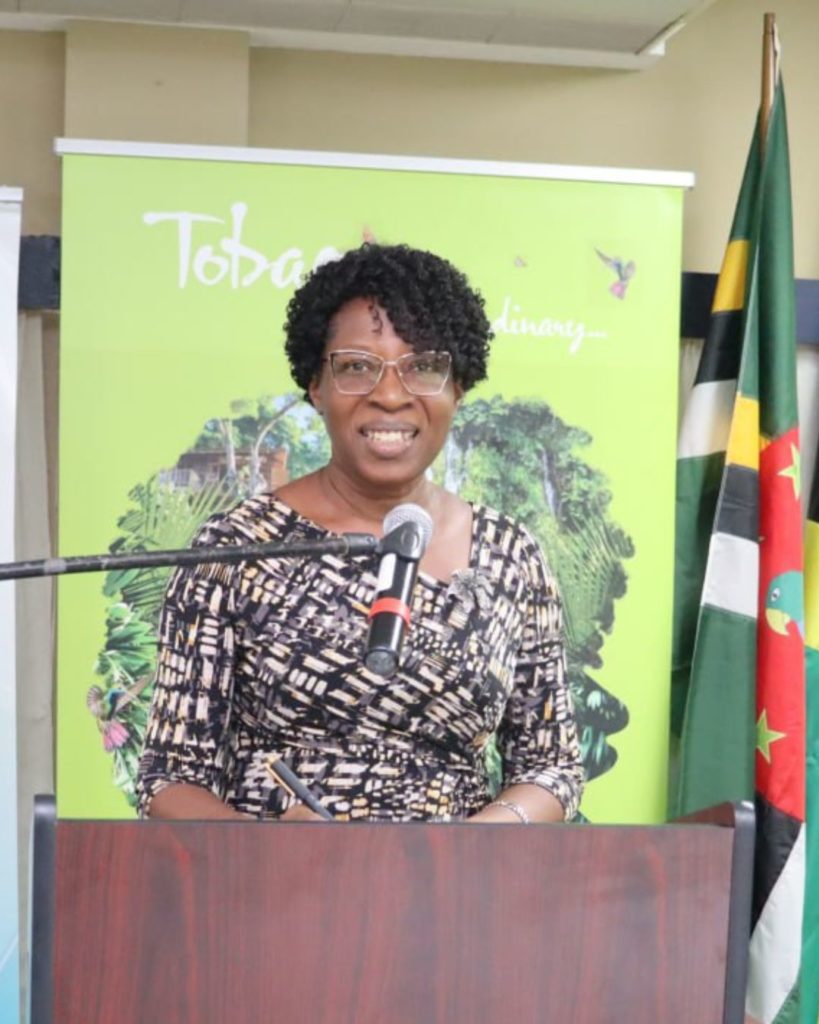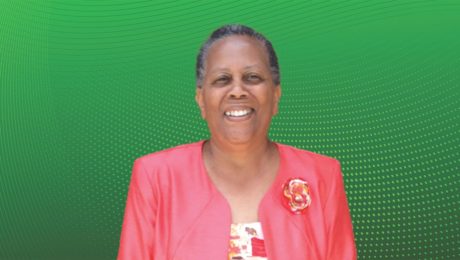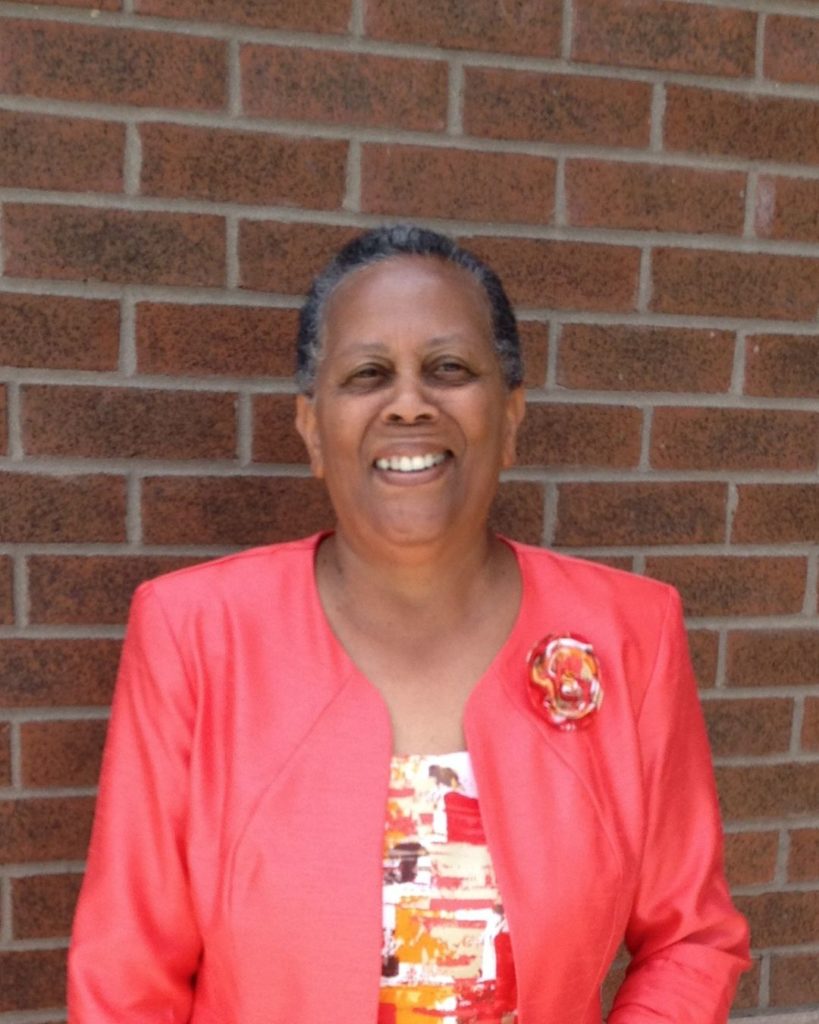Brilliance Unveiled: Meet The 2025 Portraits of Excellence Delegates!
By Simone Augustus, Communications Specialist, Office of the President
The countdown has officially begun for one of USC’s most highly anticipated events of the academic year—the Portraits of Excellence Scholarship Pageant 2025! In a vibrant assembly session titled “Brilliance Unveiled!” on Monday, September 23, 2024, eight ambitious students took center stage at the USC Auditorium, formally presenting themselves as next year’s Portraits of Excellence delegates.
With an infectious buzz in the air, the USC student body filled the auditorium with club t-shirts, national flags, and thunderous cheers in support of their respective delegates.






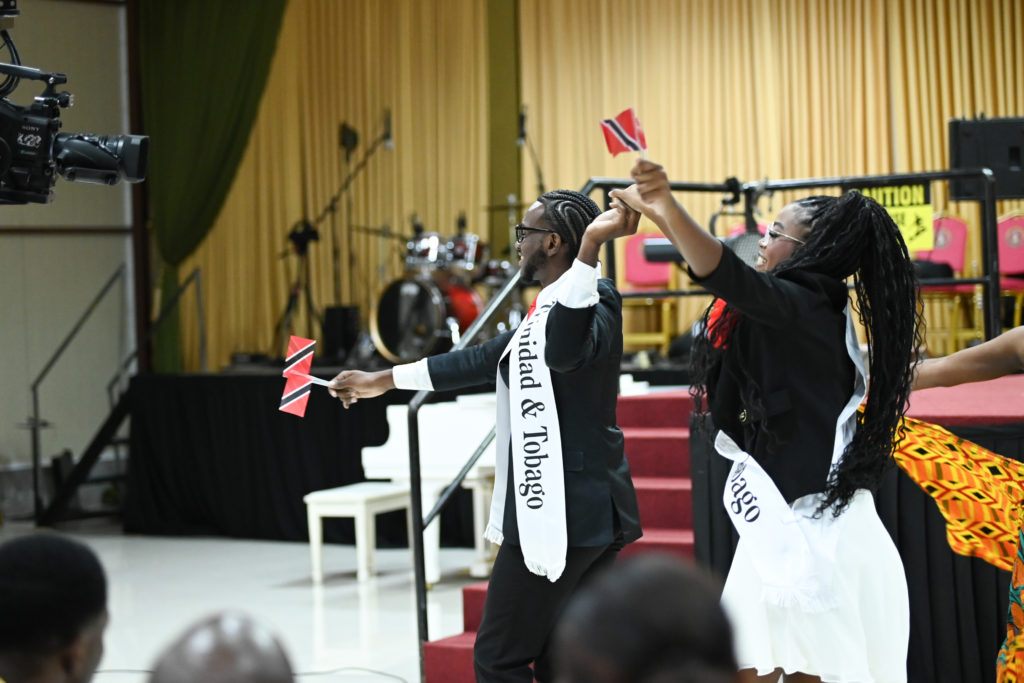


The excitement was contagious as students rallied behind their peers, ready to follow their journey toward the crown and title of Mr. and Ms. USC 2025.

Hosting the unveiling were none other than Mr. & Ms. USC 2024, Mr. Juhmaul Belfon and Ms. Jerleema Frampton, who effortlessly set the stage for the new batch of contestants with grace, humor, and a touch of nostalgia, reflecting on their own journeys in the pageant.
The theme for the upcoming pageant, “Entrepreneurial Innovations: An Imperative for Sustainability in the Caribbean,” challenges the delegates to not only showcase their poise and talents but to also champion innovation and sustainable development in the region. As we head into 2025, this theme could not be more relevant. The spotlight will be on our delegates as they propose entrepreneurial solutions for a brighter, more sustainable future.
The 2025 lineup boasts an exciting mix of talent and brilliance:








As the event drew to a close, the audience was left buzzing with anticipation for March 2025, when these delegates will once again take the stage to compete for the prestigious title. But it’s clear from this unveiling that the Portraits of Excellence Pageant is about so much more than a crown—it’s about celebrating student achievement, promoting creativity, and empowering the next generation of Caribbean leaders.
The road to Mr. and Ms. USC 2025 has officially begun, and we can’t wait to see what these delegates have in store! Stay tuned USCians—this is going to be a competition to remember!
USC Week of Welcome: Launching the Future Class of 2028 “Stronger, Faster, Higher”
By Mrs. Beverley Ellis, Mrs. Julie Guy, and Ms. Simone Augustus
As the 2024/2025 academic year kicked off, the University of the Southern Caribbean (USC) proudly welcomed over 250 first-year undergraduate students who will form the future graduating Class of 2028. Held on August 26 & 27, 2024, Freshman Orientation, fondly referred to as the Week of Welcome (WoW), was designed to help these new students transition smoothly into university life while immersing them in USC’s vibrant culture.

This year, the Department of Student Life and Support Services added a tech-savvy twist to the proceedings by implementing a QR Code system to capture attendance data, cutting down long registration lines. Students simply scanned a code, making the process efficient and seamless. In addition, WoW 2024 embraced a hybrid model, with Day 2 held virtually, ensuring that students didn’t need to return to campus for the second day’s sessions.
The WoW festivities began with an inspiring welcome ceremony at the USC Auditorium under the theme “USC Launchpad: Stronger, Faster, Higher.” This powerful metaphor set the stage for the university journey ahead, emphasizing USC’s commitment to fostering growth in mind, body, and spirit. It encapsulated USC’s motto, “Beyond Excellence,” reminding students that they’re about to embark on a transformative journey toward academic and personal success.
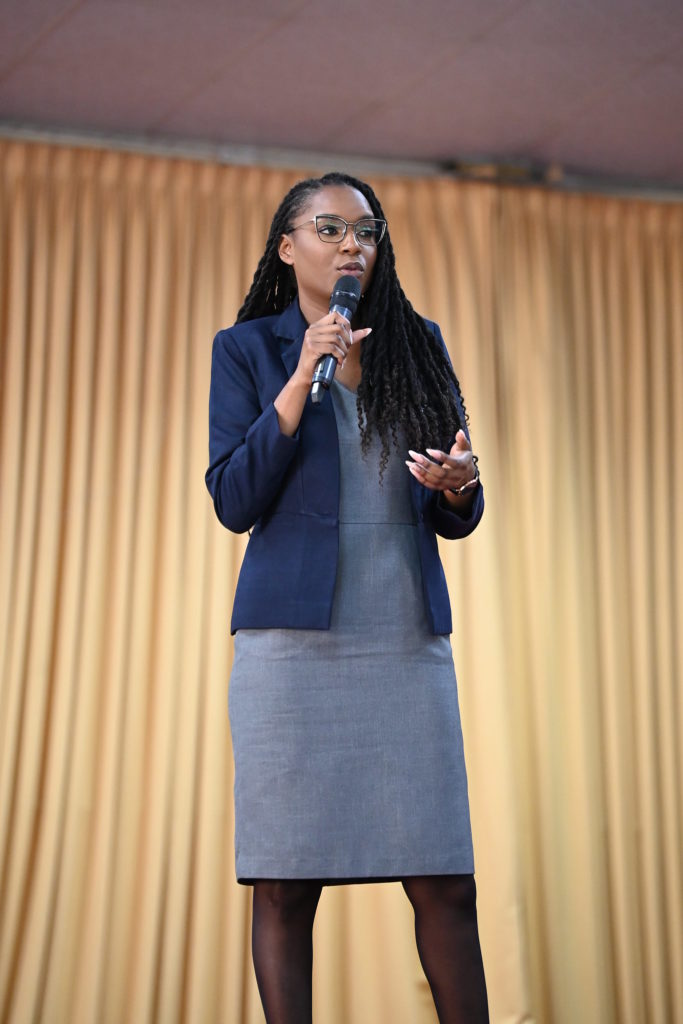
A true highlight of the opening ceremony was the keynote address delivered by Ms. Faith Walke, a USC alumna, attorney-at-law, and Ms. USC 2016. Her captivating presentation, titled “Finding Passion and Purpose Along Your Path to Success,” inspired students to use their passions to fuel both personal and professional success. Walke urged them to combine passion with purpose, creating the ultimate formula for fulfillment.
Dr. Colwick Wilson, USC’s president, delivered an equally moving speech to the incoming Class of 2028. He reflected on USC’s 97-year legacy of producing successful graduates and shared personal stories that resonated deeply with students. With his trademark humor and storytelling, Dr. Wilson compared life’s challenges to climbing USC’s infamous Cardiac Hill, urging students to persevere in the face of obstacles. “When faced with challenges, keep going. When faced with failure, try and try again—you will get there,” he said, drawing nods and smiles from the audience.
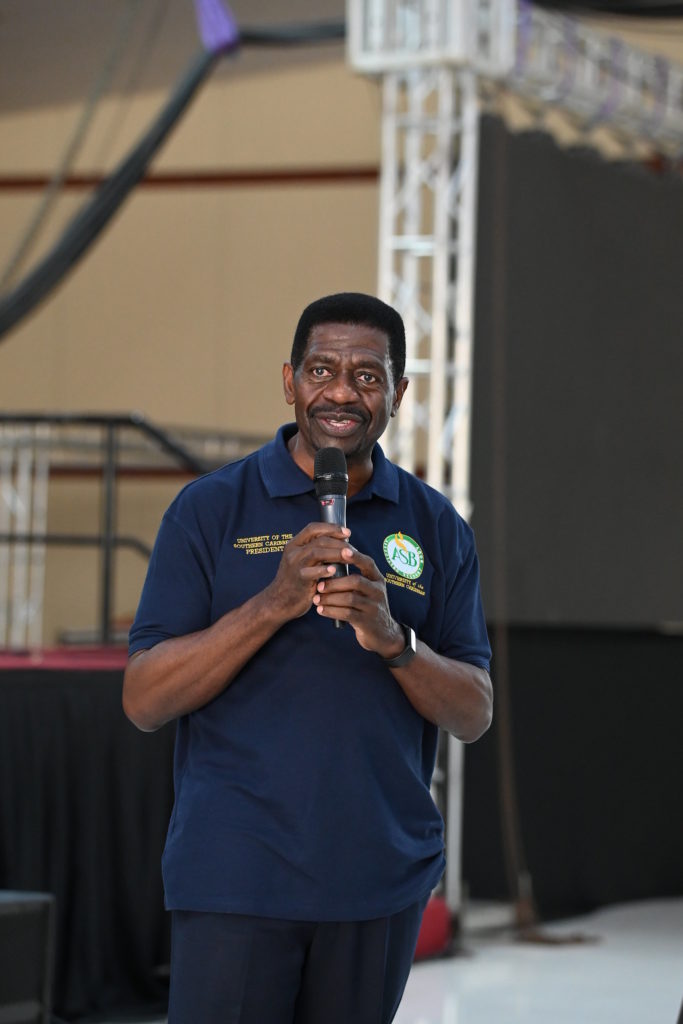
The day’s energy soared with a rousing saxophone performance by Mr. Jesse Schultz, one of USC’s own students. The performance lifted the spirits of everyone in attendance, setting a joyful tone for the remainder of the day. Mr. and Ms. USC 2024 then captivated the crowd with personal stories of how USC had shaped them both academically and personally, giving new students a glimpse into how impactful the USC experience could be.
One of the most memorable moments of orientation was the friendly game of BINGO, used as an icebreaker to get students talking and laughing. The excitement in the room was contagious, as students embraced their first taste of USC’s lively campus culture—a perfect mix of cheer, competition, and camaraderie.

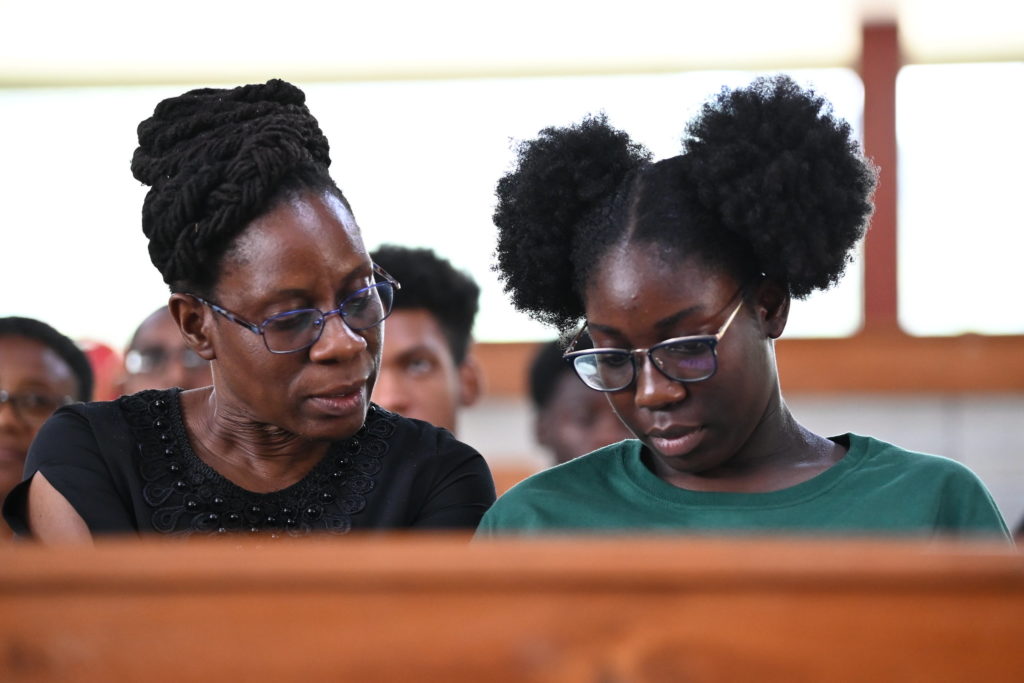





Beyond the fun and games, the Week of Welcome was packed with informative sessions designed to equip both students and parents with the knowledge they need to succeed at USC. Topics ranged from navigating the registration process to tips for thriving as a first-generation university student. Students and parents alike appreciated the thoughtful planning behind the presentations, which left everyone feeling confident about the path ahead.
The Master of Ceremonies, Mr. Anton Charles, kept the energy flowing smoothly, making both students and parents feel at ease. Meanwhile, booths from Republic Bank’s Higher Education Loan Department, the Sports and Physical Education Department, and the Associated Student Body (ASB) provided crucial resources for students to explore.


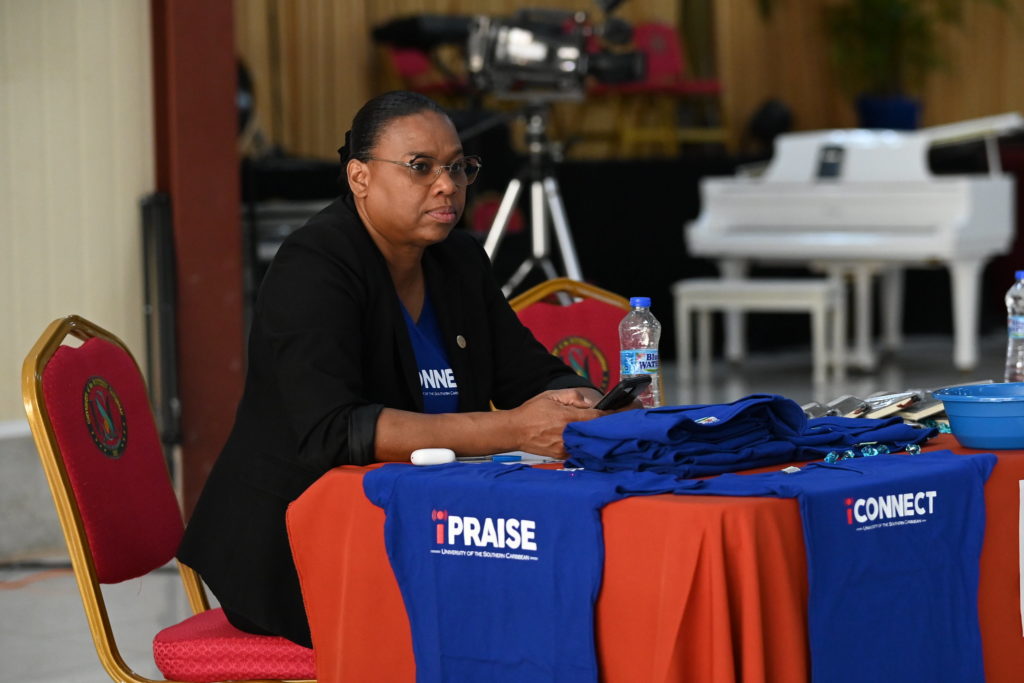



As the newest USCians launch into their academic journey, they’re not only armed with the knowledge and resources needed to succeed, but also embraced by a supportive community that will guide them every step of the way. The Week of Welcome has set the tone for the year ahead, empowering students to pursue their passions, conquer their ambitions, and thrive academically, socially, and emotionally.

